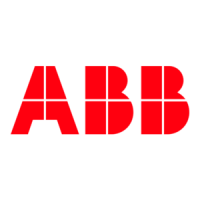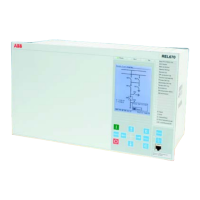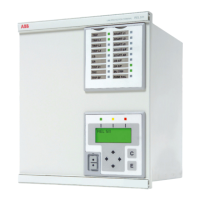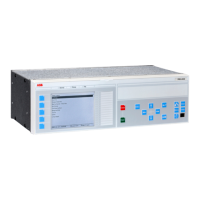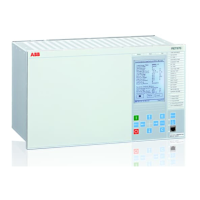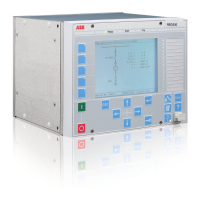Parallel line applications
SEMOD154680-168 v2
This type of networks are defined as those networks where the parallel
transmission lines terminate at common nodes at both ends. We consider the three
most common operation modes:
1. parallel line in service.
2. parallel line out of service and earthed.
3. parallel line out of service and not earthed.
Parallel line in service
SEMOD154680-175 v2
This type of application is very common and applies to all normal sub-transmission
and transmission networks.
A simplified single line diagram is shown in figure
137.
ph ph
0 1 ph N
ph 0
1
0
V V
Z Z I 3 K
I 3I
3 Z
I
Z = =
- + ×
+ ×
×
EQUATION1275 V3 EN-US (Equation 192)
Where:
Vph is phase-to-earth voltage at the IED point
Iph is phase current in the faulty phase
3I0 is earth to fault current
Z1 is positive sequence impedance
Z0 is zero sequence impedance
Z0m
A B
Z< Z<
en05000221.vsd
IEC05000221 V1 EN-US
Figure 137: Class 1, parallel line in service.
The equivalent circuit of the lines can be simplified, see figure 138.
1MRK 506 369-UEN B Section 8
Impedance protection
Line distance protection REL670 2.2 IEC 269
Application manual
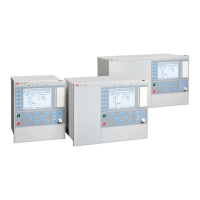
